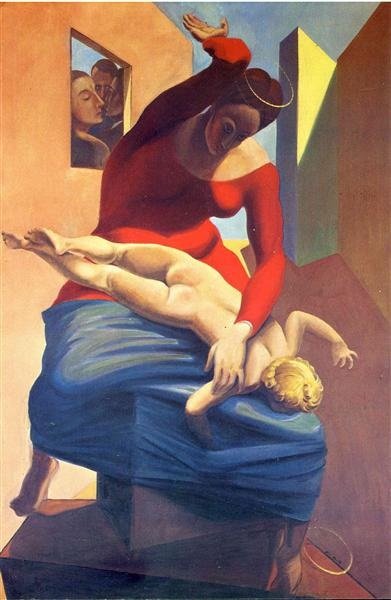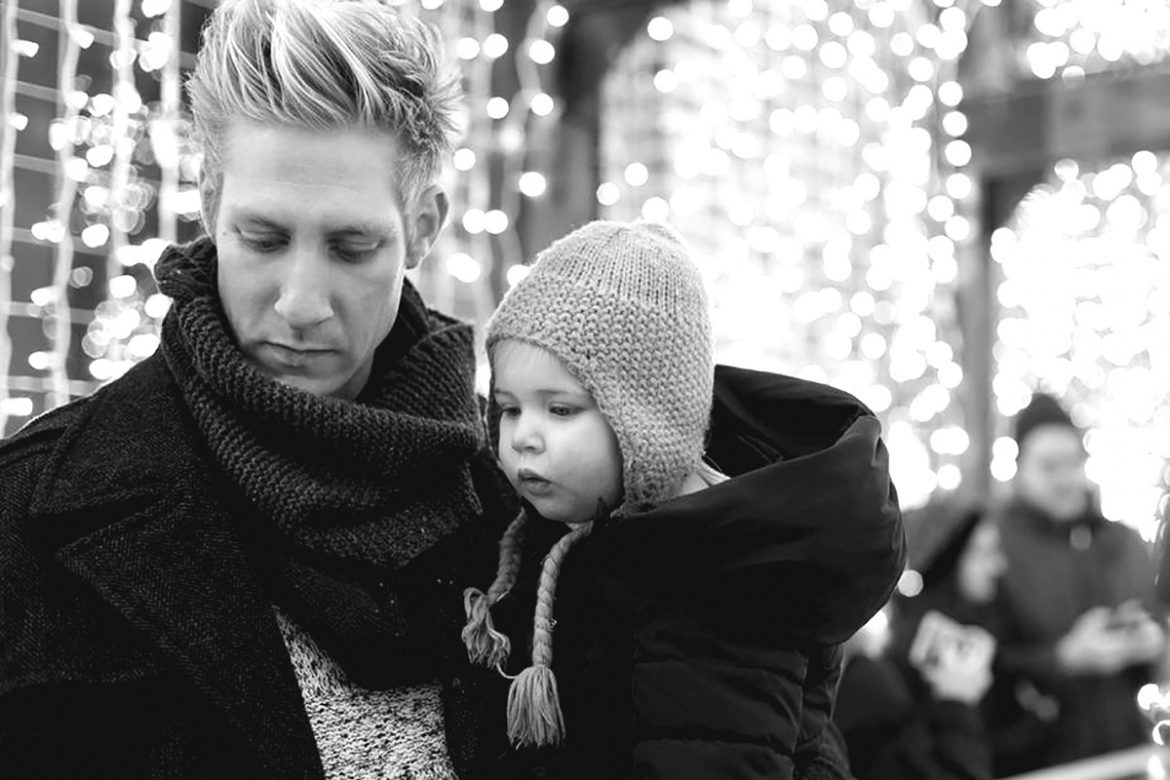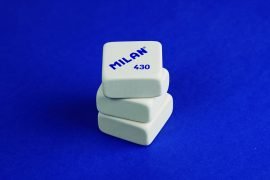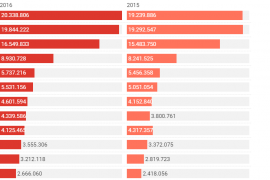The most important modern philosopher had no children. Immanuel Kant, the thinker who never left Königsberg, devoted his life to the study and writing of his critical project. He led such an orderly life, his habits and routines were inflexible to such an extent, that his fellow citizens could adjust the time on their clocks when watching him walk past their houses. They say he was only late one time, one afternoon when he lost track of time reading the works of his admired Jean-Jacques Rousseau, of whom he also kept a portrait in his office. The French thinker, author of various works on education, however, did have children and a great number of them. He abandoned all of them in an institution to be educated, maybe because he was still affected by his own childhood traumas or maybe so as to not defy theory with practice, to save himself the pain of being conditioned –that is, limited– in the legitimate exercise of his freedoms.
“Jean-Jacques Rousseau, author of various works on education, had a great number of children. He abandoned all of them in an institution to be educated”
The incompatibility of intellectual and family life is one of those philosophical topics that can be found in the very origins of thinking in public, like in the semi-mythical figure of Socrates, who was always eager to leave a home Jantipa ruled with an iron fist, to converse with anyone he found on those dusty roads. A cliché with a parody update that can be read in the booklet entitled The Sex Life of Immanuel Kant, signed by the pseudonym Jean-Baptiste Botul. Rousseau’s biographical representation intends to be much more sincere and reliable, at least a priori. Already in the first pages of his Confessions he noted with pride the pioneering nature of his endeavour, something that seeks to win the reader over through a fabulous pre-text –the sincerity of his show, as pointed out by Paul de Man– which, in the end, is impossible to corroborate: I am going to strip bare like nobody before, in return I ask for a dose of extra understanding, given the exposure it entails.
Speaking of acts of faith, the fact that Father’s Day in Spain is on the same day as Saint Joseph’s day is a powerful irony which is full of meaning. He believed his wife and accepted the most glorious role of supporting actor, becoming a sort of adoptive father for Jesus Christ; a being of divine nature and, therefore, infinitely superior to him; which in turn is a paradoxical fact, only surpassed by the Virgin’s role, a carnal participant in the birth of the son of God. The irreverent painting The Virgin Spanking the Christ Child, by the surrealist creator Max Ernst, captures the distance between creator and creature in an alarming way, as well as their strange confluence in the sacred family. Her transformation is incomprehensible to the virgin, which is reflected in the fear in her eyes when confronting Joseph’s initial disbelief, as reflected by Pier Paolo Pasolini in his The Gospel according to St. Matthew through an eloquent silence, adorned only by the trill of the swallows. But the perplexity of the parents isn’t over with the biblical assumption of the divine plan.
“Speaking of acts of faith, the fact that Father’s Day in Spain is on the same day as Saint Joseph’s day is a powerful irony which is full of meaning.”

On the contrary, it works as an archetype, which helps illustrate the experience that marvels/distresses successive generations of creatures once they become creators, remote parents of the child-god (not in vain, Freud used the expression His Majesty, the Baby); that is, when they live the mystery of incarnation in the first person and the consequent recognition in the otherness, sometimes unfathomable, that are one’s own children. No less disturbing, though correlative, is the non-recognition of oneself in one’s sameness which eventually takes place in front of a mirror. In today’s world of productive efficiency, many parents try to justify their deplorable physical appearance and explain the reason for their diminished cognitive faculties based on contrasted arguments: their lack of sleep, the absence of truly refreshing resting time or the always surprising recurrence of the unforeseen, which submerges cosmic order in perfect chaos. And there are many times when they receive the usual pat on the back from still-non-parents, with a sentence that cannot be made viral in any way, nor be successfully re-tweeted: “I can imagine (given your expression and lack of mental agility) that being a parent is hard… but I’m sure it’s rewarding“.
A statement that seems to be rhetorical, that is to say, it is posed as an affirmation, when in fact it is inquisitive, it demands confirmation (to the covert question: is it actually worth it?). Even when negative, the answer incorporates in most cases an unquestionably positive reading: having children may not be rewarding in a material sense, but nothing about their arrival is now calculable. Their reality transforms you and your new life with them is not comparable to your previous one. Nor is the change of status, the jump from creature to creator, in terms of responsibility. Many parents know that it is not a sentimental exaggeration to say that they become more valuable than one’s own life –or that they are our life– also because, in a practical sense, we invest most of our resources in them without expecting (at least not always) any explicit recognition. This is a positive reading of a negative response, but it also seems pertinent to contemplate some of the complexities that come with offspring, and that propitiate comical situations.
“Jokes contain a grotesquely deformed or without-make-up version of the truth. The thing is to identify at which point what we see is real or surreal“
A number of ads, on the occasion of this memorable day, celebrate the paradox –which Kant obviously did not consider in his study of the paralogisms of human reason– of giving life to another and, consequently, ceasing to have a life of one’s own. They show the outdated dad, whom one or several teenagers look down on unrepentantly. And, after all that, the individual is at last compensated at the end of the ad, because he’s holding a lottery ticket; that’s supposed to be his ticket to happiness, which is meant to make him forget every grievance. The scene combines real situations, even frequent ones, with other highly improbable ones… that take the edge off the drama. The caricature aftertaste is present in the television ad, funny to the extent that it has a symptomatic quota of reality. Since jokes contain a grotesquely deformed or without-make-up version of the truth. The thing is to identify at which point what we see is real or surreal. And we’re not yet saying that thinking about Max Ernst, or any of the artists who wanted to transcend the barriers of the unconscious, through the liberation of a more real (”over-real”) reality.
Mira lo que has hecho (literally, Look what you’ve done) is the title of the fantastic show about parenthood, in which Berto Romero parodies real situations, that those who haven’t had the pleasure of experiencing will believe are product of the purest and unleashed fiction. Not in vain, they add in flash-backs and flash-forwards, in which they fantasize about the causes/consequences of the education they give and have received. Such surreal situations –we’ll only mention three– as the one involving a beautiful chest, out of which springs its precious content at the worst possible moment; another concerning a moral debate, regarding the illegal use of antipyretics to send the child to kindergarten (to be able to work); or one depicting a romantic date with the mother at last –until then turned into the most inaccessible woman in the world– in which there is no other topic of conversation apart from the child, because “they have no memories left of what happened before its arrival”.
“We have also looked at a woman who is no longer ours with real passion, sensing with new happiness that, it is in fact so, because she was never really ours”
Situations that seem exaggerated, and to some spectators sound like a caricature. We parents know that everything is much more complex and much simpler than what one is warned about, half in jest half seriously. Some of us have marked texts about Kierkegaard and Luther with a baby in our arms. We have been tempted to sit the young child next to us at our university classroom, not having anywhere to leave it, still a bit feverish. We have also looked at a woman who is no longer ours with real passion, sensing with new happiness that, it is in fact so, because she was never really ours. Because one can’t possess what one loves the most, what one owes oneself to. And that the real magic, as parents, lies in assuming the porosity of the line that separates the unthinkable and the wonderful.




















